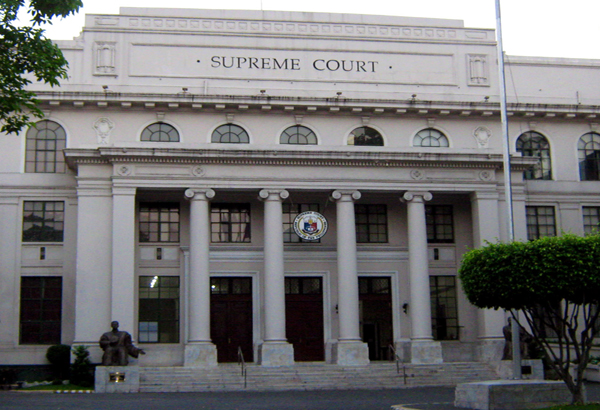What the Supreme Court ruling on revenue sharing means for LGUs

The major provisions of the measure are those that would impose a P6 tax on diesel, cooking gas, kerosene and bunker fuel for electricity over three years up to 2020 and a hefty increase in the prices of other oil products like gasoline. File
MANILA, Philippines — The Supreme Court on Wednesday affirmed with finality its landmark ruling giving local government units a higher share of national government revenue.
On July 3, 2018, the court ruled that the “just share” of LGUs should be based on all national taxes and not only on the national internal revenue taxes.
Global debt watchers and the country’s policymakers earlier warned that the high court’s decision could have negative implications for public finances.
What does the ruling mean for LGUs?
Apart from tax collections of the Bureau of Internal Revenue, the SC ruled that the internal revenue allotment, or IRA, of LGUs should include tariff and duties collected by the Bureau of Customs, as well as:
- 50% of the value-added taxes collected in the Autonomous Region in Muslim Mindanao
- 30% of all other national tax collected in the ARMM
- 60% of national taxes collected from the exploitation and development of national wealth
- 85% of the excise taxes collected from locally manufactured Virginia and other tobacco products
- The entire 50% of the national taxes collected under Sections 106, 108 and 116 of the National Internal Revenue Code as provided under Section 283 of the NIRC
- 5% of the 25% franchise taxes given to the national government under Section 6 of Republic Act 6631 and Section 8 of Republic Act 6632. (Horse Racing Laws)
Many LGUs are dependent on IRAs as their primary source of revenue, even though the law allows them to generate taxes on real property and on businesses, among other fees and charges.
The SC ruling could oblige the national government to hike its future revenue transfers to LGUs.
On Wednesday, April 10, the SC also rejected an appeal that sought to retroactively apply the expanded basis in computing the IRAs of the LGUs to 1992 — or when the revenue assignment of LGUs was first defined by the Local Government Code.
The high court then clarified that “the adjusted amounts will be given to the LGUs starting with the 2022 budget cycle.”
What officials, economists previously said
When the decision came out last year, Finance Secretary Carlos Dominguez III said the prospective application of the SC ruling would be manageable for the national government, as initial estimates showed the IRA arrearages could reach P1 trillion to P1.5 trillion if the decision is retroactively implemented.
Dominguez also said the Department of Finance is open to devolving some functions of the national government to LGUs to comply with the SC’s ruling.
But the finance chief expressed doubts about some LGUs’ capacity to deliver their own programs, and noted that devolving some functions should not affect other national government projects.
“We also don’t know what functions they will take over. We cannot just give them the money and say: ‘We’re leaving you in charge.’ I don’t think we can do that,” he said in a July 12 media interview.
Two of the so-called “Big Three” debt watchers, Fitch Ratings and Moody’s Investor Service, earlier warned of the SC ruling’s fiscal risk.
In statement issued on July 20 last year, Moody’s said prospective changes to governance frameworks, including the SC ruling redefining LGU’s revenue share and the proposed shift to federalism, could have “negative implications for public finances.”
“There may be a gap between the national and local levels of government with respect to their ability to manage fiscal resources, posing a risk to the improved fiscal discipline that has characterized national government finances over the past decade,” Moody’s said.
Separately, Fitch said in a July 17, 2018 statement: “The impact on the Philippines' fiscal balances of a recent Supreme Court ruling requiring increased transfers from the central to local government units remains unclear given the uncertainty over the precise timing and content of the ruling.”
“However, based on our preliminary assessment, the ruling could put upward pressure on the general government debt ratio, as well as creating challenges for effective public-finance management,” it added. — Ian Nicolas Cigaral with reports from BusinessWorld
- Latest
- Trending





























